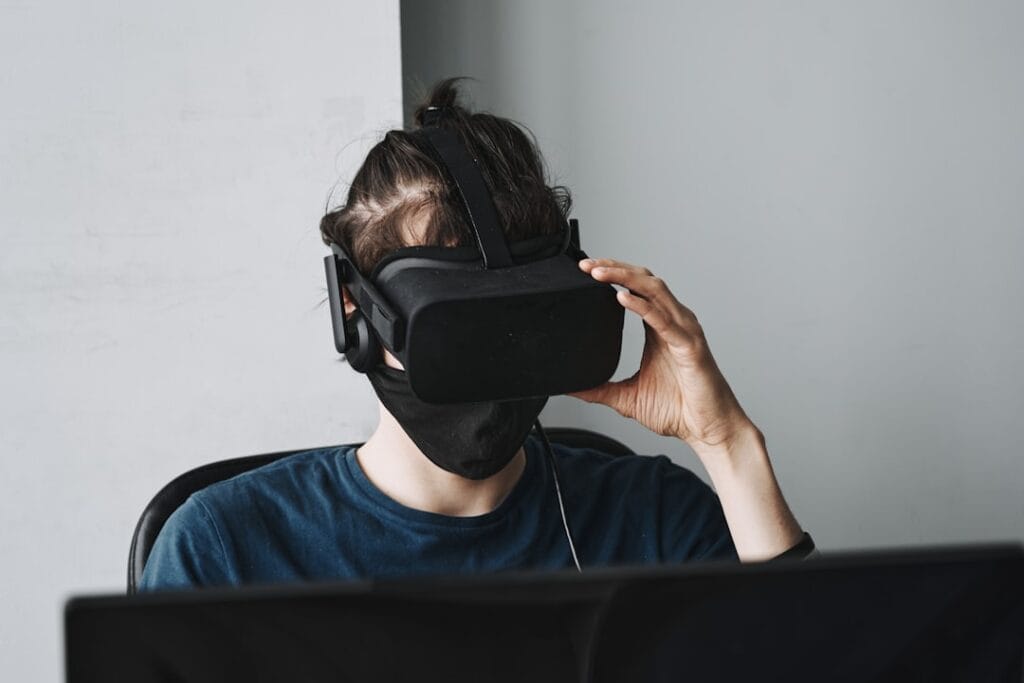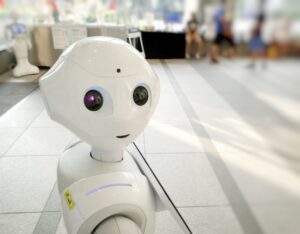AI television refers to the use of AI technology in the production and delivery of television content. Unlike traditional TV production, which relies heavily on human intervention and manual processes, AI television utilizes algorithms and machine learning techniques to automate various tasks. This includes everything from generating ideas for TV shows to analyzing viewer data and creating personalized content.
One of the key components of AI television is machine learning, which involves training algorithms to learn from data and make predictions or decisions without being explicitly programmed. This allows AI systems to analyze vast amounts of data and identify patterns or trends that humans may not be able to detect. In the context of TV production, machine learning can be used to analyze viewer preferences and behavior, identify trends in popular shows, and even generate ideas for new content.
Another important aspect of AI television is natural language processing (NLP), which enables computers to understand and interpret human language. NLP algorithms can be used to analyze scripts, captions, and subtitles, making it easier for producers to search for specific scenes or dialogue. NLP can also be used to create virtual hosts or chatbots that interact with viewers in real-time, providing a more personalized and engaging TV experience.
Synthetic Television: How AI is Creating Entirely New TV Experiences
One of the most exciting aspects of AI television is its ability to create entirely new types of TV shows and experiences. AI algorithms can generate scripts, create virtual hosts, and even produce personalized content based on viewer preferences. This opens up a whole new world of possibilities for TV producers and viewers alike.
For example, AI algorithms can generate scripts for TV shows based on popular trends or themes. By analyzing data from social media, streaming platforms, and other sources, AI systems can identify patterns and predict what types of shows are likely to be successful. This allows producers to create content that is tailored to the interests and preferences of their target audience.
AI is also being used to create virtual hosts or chatbots that interact with viewers in real-time. These virtual hosts can provide information about the show, answer questions, and even engage in conversations with viewers. This not only enhances the viewing experience but also allows producers to gather valuable data about viewer preferences and behavior.
Furthermore, AI technology is enabling the creation of personalized TV content. By analyzing viewer data, such as viewing history, preferences, and demographics, AI systems can generate personalized recommendations and even create customized versions of TV shows or movies. This means that each viewer can have a unique and tailored TV experience, increasing engagement and satisfaction.
The Benefits of AI in TV Production: Efficiency, Accuracy, and Cost-Effectiveness
The use of AI technology in TV production offers several benefits that are transforming the industry. One of the key advantages is increased efficiency. AI algorithms can automate various tasks that would otherwise require significant time and effort from human producers. For example, AI systems can analyze scripts and identify potential issues or inconsistencies, saving producers valuable time during the pre-production phase. Similarly, AI algorithms can automate the process of editing and post-production, reducing the time required to deliver a finished product.
In addition to efficiency, AI technology also improves accuracy in TV production. AI algorithms can analyze vast amounts of data and identify patterns or trends that humans may not be able to detect. This allows producers to make more informed decisions about content creation, casting, and marketing. For example, AI systems can analyze viewer data to identify trends in popular shows and predict which types of content are likely to be successful. This reduces the risk of producing shows that may not resonate with the target audience.
Furthermore, the use of AI in TV production can lead to significant cost savings. By automating various tasks, AI systems reduce the need for human labor, which can be a significant expense in the production process. Additionally, AI algorithms can optimize resource allocation, such as camera angles or lighting, to ensure the best possible quality while minimizing costs. This makes TV production more accessible to independent producers or smaller production companies that may have limited budgets.
The Future of TV Production: How AI is Changing the Game
The future of TV production is undoubtedly shaped by AI technology. As AI algorithms continue to improve and become more sophisticated, we can expect even more significant transformations in the industry.
One area where AI is likely to have a significant impact is content creation. AI algorithms are already being used to generate ideas for TV shows and movies based on popular trends or themes. In the future, we may see AI systems that are capable of creating entire scripts or storylines, reducing the need for human writers. This could lead to a proliferation of new and innovative content that may not have been possible without A
Another area where AI is likely to play a crucial role is in the delivery of personalized TV content. As AI algorithms become better at analyzing viewer data and understanding individual preferences, we can expect more personalized recommendations and customized versions of TV shows or movies. This will not only enhance the viewing experience but also provide new opportunities for advertisers to target specific audiences.
Furthermore, AI technology is likely to continue improving the efficiency and accuracy of TV production. As algorithms become more sophisticated, they will be able to automate more tasks and make more informed decisions. This will lead to faster production times, improved quality, and reduced costs, making TV production more accessible to a wider range of producers.
Automation in TV Production: From Script to Screen

AI technology is being used to automate various aspects of TV production, from scriptwriting to post-production. This automation not only improves efficiency but also allows producers to focus on more creative aspects of the production process.
One area where AI automation is particularly useful is in scriptwriting. AI algorithms can analyze vast amounts of data, such as scripts from successful shows or movies, and generate new scripts based on popular trends or themes. This not only saves time but also provides producers with a starting point for their creative process.
AI automation is also being used in the editing and post-production phase of TV production. AI algorithms can analyze footage, identify the best takes, and even suggest edits or special effects. This reduces the time and effort required for manual editing and ensures a higher quality finished product.
Furthermore, AI automation is being used to optimize resource allocation in TV production. For example, AI algorithms can analyze camera angles, lighting conditions, and other factors to determine the best settings for each scene. This not only improves the quality of the final product but also reduces costs by minimizing the need for manual adjustments.
AI and Personalization: How TV is Becoming More Tailored to Your Tastes
One of the most exciting developments in AI television is the ability to create personalized content based on viewer preferences and behavior. AI algorithms can analyze vast amounts of viewer data, such as viewing history, preferences, and demographics, to generate personalized recommendations and even create customized versions of TV shows or movies.
Personalized recommendations are already a common feature on streaming platforms like Netflix or Amazon Prime Video. These platforms use AI algorithms to analyze viewer data and suggest content that is likely to be of interest to each individual viewer. This not only enhances the viewing experience but also helps viewers discover new shows or movies that they may not have otherwise found.
In addition to personalized recommendations, AI technology is also being used to create customized versions of TV shows or movies. For example, AI algorithms can analyze viewer data to determine which scenes or storylines are most engaging for each individual viewer. Based on this analysis, AI systems can create customized versions of the content that highlight the most relevant or interesting parts for each viewer. This provides a more tailored and engaging TV experience, increasing viewer satisfaction and engagement.
The Role of AI in Content Creation: From Idea to Execution
AI technology is playing an increasingly important role in the entire content creation process, from generating ideas for TV shows and movies to assisting in the production process.
One area where AI is particularly useful is in generating ideas for TV shows and movies. AI algorithms can analyze vast amounts of data, such as scripts from successful shows or movies, viewer preferences, and popular trends, to generate new ideas that are likely to resonate with the target audience. This not only saves time but also provides producers with a starting point for their creative process.
Furthermore, AI technology is being used to assist in the production process itself. For example, AI algorithms can analyze scripts and identify potential issues or inconsistencies before production begins. This allows producers to make necessary changes or adjustments early on, reducing the risk of costly mistakes during filming.
AI is also being used to optimize resource allocation in TV production. For example, AI algorithms can analyze camera angles, lighting conditions, and other factors to determine the best settings for each scene. This not only improves the quality of the final product but also reduces costs by minimizing the need for manual adjustments.
The Challenges of AI in TV Production: Ethics, Creativity, and Human Involvement
While AI technology offers many benefits to the TV production industry, it also presents several challenges that need to be addressed. One of the main concerns is the ethical implications of using AI in TV production. For example, there are concerns about the potential for bias in AI algorithms, as they are trained on historical data that may reflect societal biases. This could lead to the perpetuation of stereotypes or discrimination in TV content.
Another challenge is the impact of AI on creativity. Some argue that relying too heavily on AI algorithms could stifle creativity and lead to a homogenization of TV content. They argue that human creativity and intuition are essential for producing truly innovative and unique content.
Furthermore, there are concerns about the role of human involvement in the TV production process. While AI technology can automate various tasks, there is still a need for human input and oversight. Human producers bring a unique perspective, intuition, and creativity that cannot be replicated by AI algorithms alone. It is important to strike a balance between automation and human involvement to ensure the best possible outcome.
The Exciting Possibilities of AI in TV Production
In conclusion, AI technology is revolutionizing the TV production industry in many ways. From generating ideas for TV shows to automating various aspects of the production process, AI is making TV production more efficient, accurate, and cost-effective. It is also creating entirely new TV experiences, such as virtual hosts and personalized content.
While there are challenges to overcome, such as ethical considerations and concerns about creativity and human involvement, the possibilities offered by AI in TV production are truly exciting. As AI algorithms continue to improve and become more sophisticated, we can expect even more significant transformations in the industry. The future of TV production is undoubtedly shaped by AI technology, and it holds great promise for producers and viewers alike.
If you’re interested in the fascinating world of AI in virtual television production, you won’t want to miss this insightful article on how AI is revolutionizing the industry. Discover how AI-powered technologies are enhancing the efficiency and creativity of virtual television production processes. To delve deeper into this topic, check out this related article on AI frameworks for virtual television production. And if you’re curious about the role of AI in detecting fake news and deepfakes, don’t miss this eye-opening piece on FakeCatcher. Explore these articles and more at https://aitv.media/fakecatcher/.



